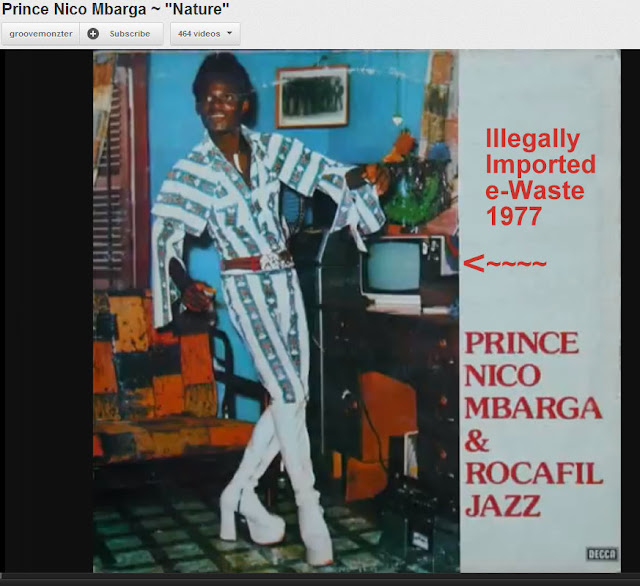I was having a little Facebook chat with an old chum from Peace Corps (Cameroon 1984-86) early this morning, and she shared with me a
Washington Post article about John Beale, who reported to Gina McCarthy (now head of EPA, and a former upstairs-dweller at EOEA when I worked at Massachusetts DEP's Recycling program in the 1990s). I'm told that Beale's original development work was legit, but the slippery slope of junkets turned into a kind of riptide. (If you don't have time for pontification, enjoy this amusing Vimeo parody "
License to Chill")
 |
| It's about Fufu |
Beale often went to Africa. At the beginning he claimed it was for an international-EPA-outreach on "stoves" for more efficient cooking of fu-fu. Within the EPA, the story goes, it became widely accepted that he was actually working for the CIA, and his EPA post was "cover" for
cloak and dagger work.
No. According to his deposition, he was just playing hooky. His cover story about "cook stoves" (which were nothing we hadn't seen in the 1980s, not much of a cover story for people who lived in Africa) was all he had come up with, and when the internal EPA gossip gave him "CIA" cover, it just made his travel appear more exotic.
We like to be exotic.
I had shared a link with Judi about a
"fu-fu pounding machine" covered by an African blogger this week. It reminded me of how many hours of work teenage African girls and their mothers spend pounding nyams and gari into this delicious cookie-dough-like staple. Fufu is dipped into all kinds of green, brown and orange colored spice gravies. I wondered to Judi whether appliances like these might play something of the role washing machines and dishwashers are said to have played in the saga of American women's liberation.
Freedom from labor is freedom to read. In the Mary Poppins movie, the mother is freed to promote "vote for women suffrage" by the housekeepers and hired help. Democratic participation has always been for people with time on their hands. Laundromats (
which I've sung the praises of before) freed people - mostly women - to have more time after school to study, and to participate in other earning activity.
When
Amartya Sen wrote of "100 Million Missing Women" it turned "environmental justice" on its side.
When women's hours are missing from the economy, land values stagnate, wars ensue, social development is stymied, and cultures tend to be, in a word, "more primitive". With eventual acceptance of the washing machine, we release women to do more productive things. Like write books, in the case of Rachel Carlson, author or Silent Spring. (The tangential irony is that women were freed by technology, the downsides of which she aptly described. Manufacturing of devices created waste and toxics, which tend to wind up in places where land values are lower... This isn't a rant, as I'm a fan of Carson, it's more of a yin yang thing.)
 Here's film of the "fufu pounding machine"
Here's film of the "fufu pounding machine" with traditional (women labor) pounding to the right. In Africa, hand laundry is pounded in similar way, and as the video demonstrates, automated fufu pounding is a lot like a washer-dryer. The first ones were probably made with spare WEEE parts (see bottom).
More professional videos (including consumer on the streets interviews) raise fears of change among African men, fear of the unnatural, association with disease, and other modern "modernization juju"). African Men demand "certification" and call for the machines being "certified". An opening for fufu Stewards? What I can hear in the back of my mind is echos of similar "fear of tech", like the effects of train motion on
womens uteruses, the hyperbole over direct current electricity, and "ghoulish" practices of computer monitor refurbishing (as described by Puckett and co.).
 This week, Bloomberg's Adam Minter covers an important new front in the battle to repair your stuff. Seems the CTIA (a cell phone group, similar to the Anti-Gray-Market-Alliance) is seeking sponsors for a bill to keep a geek from unlocking a chip so you can use your cell phone with a different carrier.
This week, Bloomberg's Adam Minter covers an important new front in the battle to repair your stuff. Seems the CTIA (a cell phone group, similar to the Anti-Gray-Market-Alliance) is seeking sponsors for a bill to keep a geek from unlocking a chip so you can use your cell phone with a different carrier.

+-+YouTube+-+Google+Chrome+2212014+71648+AM.bmp)





